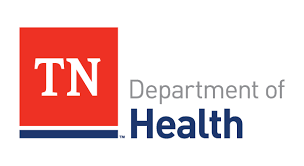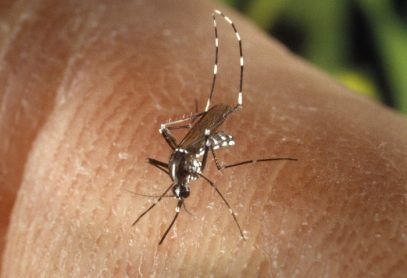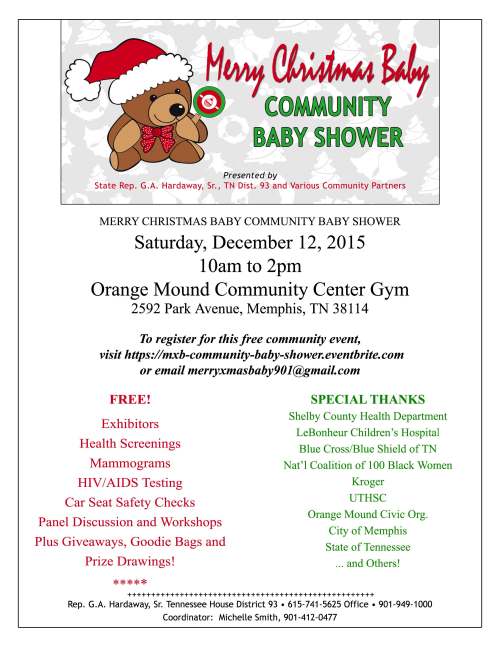
Healthy Eating Before, During and After Pregnancy
by Betty Marrero
Public Heath Coordinator- Chronic Disease
Shelby County Health Department
Maintaining a healthy lifestyle throughout pregnancy, as well as before and after, is key for both baby and mother. A healthy pregnancy actually begins before you become pregnant. It’s important to know how health conditions and risk factors can affect you or your unborn baby if you become pregnant. For example, some foods, habits, and medicines can harm your baby — even before he or she is conceived. Some health problems, such as diabetes, also can affect pregnancy. The five most important things you can do for preconception health are:
- Take 400 to 800 micrograms (400 to 800 mcg or 0.4 to 0.8 mg) of folic acid every day if you are planning or capable of pregnancy to lower your risk of some birth defects of the brain and spine, including spina bifida.
- Stop smoking and drinking alcohol.
- If you have a medical condition, make sure it is under control. Some conditions that can affect pregnancy or be affected by it include asthma, diabetes, oral health, obesity, or epilepsy.
- Talk to your doctor about any over-the-counter and prescription medicines you are using. These include dietary or herbal supplements.
- Avoid contact with toxic substances or materials that could cause infection at work and at home. Stay away from chemicals and cat or rodent feces.
Important steps to a healthy pregnancy include eating a balanced diet; gaining the right amount of weight; enjoying regular physical activity; taking a vitamin and mineral supplement if recommended by a physician; and avoiding alcohol, tobacco and other harmful substances.
When you’re pregnant, what you eat and drink is the main source of nourishment for your baby. Eating well during pregnancy is more than simply increasing how much you eat. You must also consider what you eat.
A healthy diet includes proteins, carbohydrates, fats, vitamins, minerals, and plenty of water. The U.S. government publishes dietary guidelines that can help you determine how many servings of each kind of food to eat every day.
Scientists know that your diet can affect your baby’s health — even before you become pregnant. For example, recent research shows that folic acid helps prevent neural tube defects (including spina bifida) from occurring during the earliest stages of fetal development — so it’s important to consume plenty of it before you become pregnant and during the early weeks of your pregnancy.
Even though many foods, particularly breakfast cereals, are fortified with folic acid, doctors now encourage women to take folic acid supplements before and throughout pregnancy (especially for the first 28 days).
Calcium is another important nutrient. Because your growing baby’s calcium demands are high, you should increase your calcium consumption to prevent a loss of calcium from your own bones. Your best food sources of calcium are milk and other dairy products. However, if you have lactose intolerance or dislike milk and milk products, ask your doctor about a calcium supplement.
No level of alcohol consumption is considered safe during pregnancy. And although many doctors feel that one or two 6- to 8-ounce cups per day of coffee, tea, or soda with caffeine won’t harm your baby, it’s probably wise to avoid caffeine altogether if you can. High caffeine consumption has been linked to an increased risk of miscarriage and other problems, so limit your intake or switch to decaffeinated products.
Fish and shellfish can be a healthy part of your pregnancy diet because they contain beneficial omega-3 fatty acids and are high in protein and low in saturated fat. Some types of fish contain high levels of mercury, which can cause damage to the developing nervous system of a fetus. Almost all fish and shellfish contain small amounts of mercury, but you can safely eat up to 12 ounces (2 average meals) a week of a variety of fish and shellfish that are lower in mercury, such as salmon, shrimp, clams, Pollock, catfish, and tilapia.
As a new mom, or even if this is your second or third child, you’ll need plenty of energy to take care of baby. Choosing the right foods — fruits, vegetables, whole grains, lean protein and dairy — is especially important if you are breast-feeding. To ensure adequate milk supply, you’ll need to meet your energy needs and include essential nutrients in your diet. For most post-partum women, calorie intake should be in the 1,800 to 2,200 range with an extra 300 to 400 calories more per day while lactating, depending on how much milk the mother is producing.
6 Tips for Mom’s Healthy Meal Plan
- Don’t skip meals.
- Drink at least 6 to 8 glasses of water. If breast-feeding, get into the habit of filling a tall glass of water to keep with you all day.
- You need 1,000 milligrams of calcium daily. You can get this easily by consuming three servings of low-fat or fat-free dairy throughout the day.
- Consume at least 2 cups of fruits and 2½ cups of vegetables.
- Include protein at each meal.
For more information, follow these links:
http://www.familydoctor.org
http://www.womenshealth.gov
http://www.usda.gov
http://www.medplus.com








